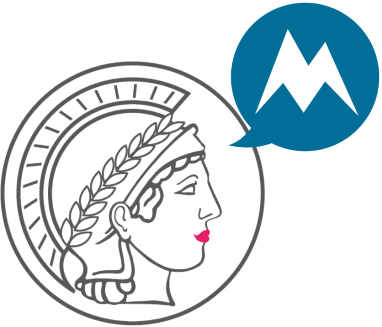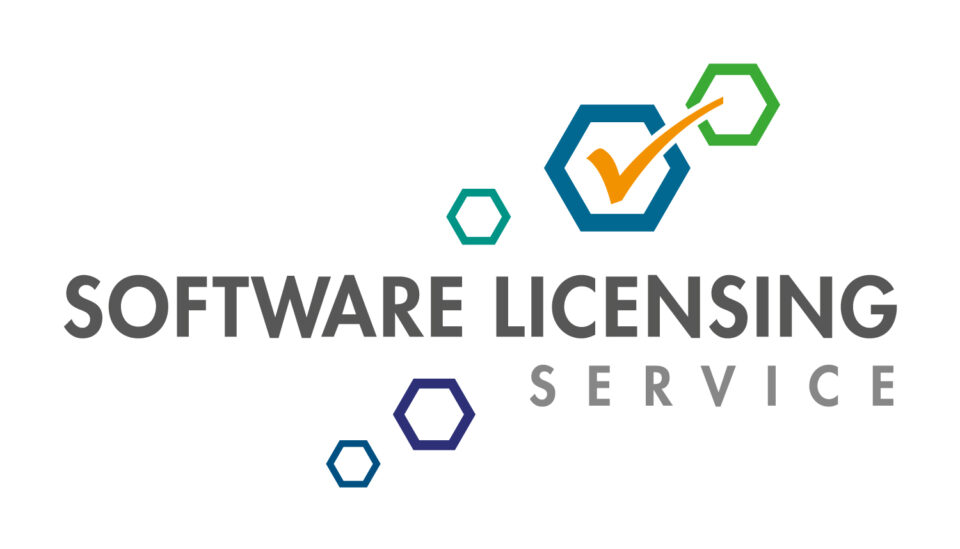Selected Services @ MPDL
Selected Services @ MPDL

With the Keeper Service, you can easily sync and share your project data and in addition, we take care that your work is properly archived in the Max Planck infrastructure. Convince yourself of the reliable and high performant file syncing algorithms and the built-in file encryption. Support your team with the Keeper collaboration functionalities. With storing your data in Keeper you can be sure to fulfill the regulations of the Max Planck Society as well as the German Research Foundation to ensure ‘good scientific practice’. Or you deposit your data to the Keeper Service after your project ends for long-term compliant archiving.
The Keeper Service is free of charge for all Max Planck employees. If you are from an external organization and collaborate with the Max Planck Society you are also invited to exploit the Keeper Service for all Max Planck related projects. Please contact the Keeper support team.
Go to Keeper

Electronic laboratory notebook designed for scientists by scientists
Labfolder is the place to record, integrate and manage scientific data. With this electronic laboratory notebook (ELN) software researchers can handle the scientific documentation effortlessly with a lot of support for compliance with academic standards. Labfolder fully supports the Code of Conduct for Safeguarding Good Academic Practice. The Full Audit trail and the possibility of digital signatures ensure intellectual property and take care for data integrity.
Labfolder is characterized by an easy to handle rights and roles management. For example, admin users are able to prevent group members from deleting entries or projects and are allowed to view group members’ lab notebooks. Labfolder makes it easy to create groups and subgroups, to define content share settings, to send messages within a group, and to use comments to discuss data. Furthermore, it is possible to assign tasks to group members.
It is not only possible to import PDF files, further processing of imported word or excel files can also be done within Labfolder. The integration of external apps like Figshare completes this ELN.
If you are interested in using Labfolder as an MPG researcher, please contact labfolder [at] mpdl [dot] mpg [dot] de.
Go to Labfolder

Give a home to your open data
Edmond is a research data repository for Max Planck researchers. It is the place to store completed collections of scientific data sets with open access. Edmond can be used to publish raw data for re-use by other researchers as well as supplementary secondary data underlying a certain publication. Our research data repository features a non-restrictive metadata schema definition, as simple as you like and as complex as your parameters require. Edmond is provided as a central service by the Max Planck Digital Library. It is based on the Open Source Software imeji.
Go to Edmond

Make your content citable
Assigning persistent identifiers to research data and unpublished text material is of growing importance to improve the citability of these resources. This is a necessary step towards enabling easy data distribution and reuse. The MPDL is supporting Max Planck researchers with registering Datacite DOI names to scholarly objects stored in MPG repositories. This is done in cooperation with the German National Library of Science and Technology (TIB).
Go to DOI Service

One stop shop for Open Access questions
Open Access Support is your contact point for all questions related to Open Access. If you are a Max Planck researcher you may want to obtain information on how the Max Planck Society supports Open Access, for instance, to help you with your copyright concerns or with handling Open Access article charges. So please contact us!
Please note: Librarians at the Max Planck Institutes also work on Open Access and may want to support you locally at your institute.
Go to Open Access Support

MPDL offers a complete and continuously updated reference of most MPG-licensed eBooks on a by-title basis. The database can be searched via a simple search slot or by using expert search functionalities. The result list of each search is relevance-ranked and can easily be refined. Every listed item includes a direct download link to the identified eBook.
Go to MPG.eBooks

You are looking for scientific information and appropriate resources? The MPG Resource Navigator (MPG.ReNa) helps you to find the right database for your retrieval. MPG.ReNa lists and describes journal collections, e-Book collections, and databases exclusively licensed for MPG scientists. Access MPG.ReNa to get an overview and navigate through the entire MPG collection as well as your own institute‘s resources.
Go to MPG.ReNa

MPG.PuRe is the institutional publication repository of the MPG. The Max Planck Institutes use this application to make bibliographic data of their academic publications (title, author, publisher, etc.) accessible to the public. In addition, it supports Green Open Access and provides a possibility to upload full-texts or supplementary material (e.g. PDF, Excel). The visibility of stored data is raised by automatic search engine indexation. Interfaces enable multiple re-use options, e.g. for various websites, reports, blogs, or the MPG yearbook. MPG.PuRe is a central service provided by the MPDL.
Go to MPG.PuRe

Enlarge your funding base
Are you looking for your next research funding?
MPDL provides you with access to up-to-date research funding information through dedicated databases. These comprehensive tools contain information on funding opportunities and many related news items.
Go to Research Funding Information

iThenticate is a leading plagiarism checker service. It makes it easier for you to identify and attribute any material that may contain unintentional plagiarism. As an author, you can ensure that you have sufficiently cited your sources. As an reviewer, it can help you to detect plagiarism and attribution issues that could potentially damage reputations or spawn repercussions like financial and legal obligations.
iThenticate compares your uploaded documents to published research articles from global scientific, technical, and medical publishers and web content. The highlighted text will include text that has been properly quoted and cited so it is not necessarily plagiarized. You will need to verify that every highlighted section has been properly quoted, summarized, or paraphrased.
Note: iThenticate is a hosted third-party service. As you need to upload your documents to the company’s servers, it is not suited for documents containing sensitive information.
Go to iThenticate

The bloxberg infrastructure is a secure global blockchain established by a consortium of leading research organizations to provide scientists with decentralized services worldwide. The bloxberg infrastructure broadens the scientific landscape of regionally and nationally governed blockchain networks to become the first truly globally maintained scientific decentralized network for scientists. By establishing the permissioned, public blockchain bloxberg, the network is safeguarded against the cryptographic power of third entities, as the credibility of the research organizations maintaining the network, constitutes trust in the system.
Go to bloxberg

The Minerva Messenger (based on Mattermost) brings all MPG communication together, making it searchable, accessible & easy to use – anywhere. You can create your chat channels, communicate with team members, discuss current topics and share your data files. Also, you can invite external collaboration partners & use Zoom at any time. Furthermore Minerva Messenger offers functionalities of Boards to manage projects and Playbooks to orchestrate workflows, supporting you and your team to arrange project tasks, meeting minutes, and re-occurring processes. This innovative platform is provided & maintained by the MPDL, which means all your data is safe within our secure MPG infrastructure.
Go to Minerva Messenger

Software licensing should be more convenient for all Max Planck Institutes and MPG-facilities. For this reason, MPDL received the job of creating an MPG-wide, institutionalized basic supply of software and online services, similar to the “Grundversorgung” for information resources. The SoLi-Team organizes the cross-institute software procurement and is, therefore, your central point of contact for questions relating to the basic supply of software and online services. To get an impression of the portfolio, check the always-up-to-date and still-growing list* on our website. If you spot anything useful for your work, just contact your local software licensing officer* or your IT to receive a license.
Go to Software Licensing Service*
*only within MPG IP-range

Find out more in MPDL’s Service Catalog.


